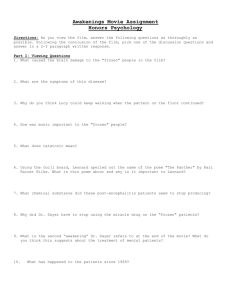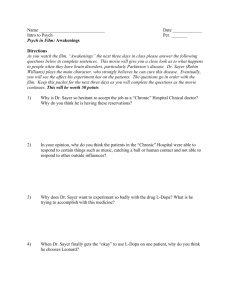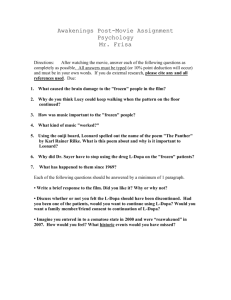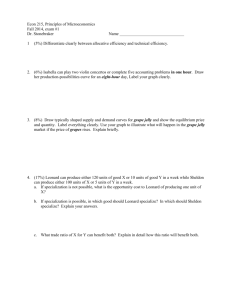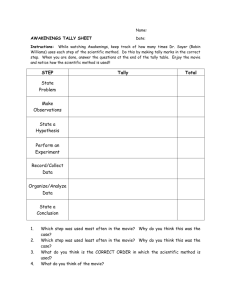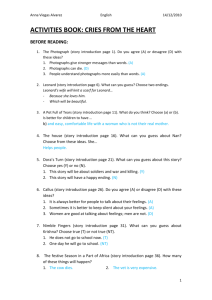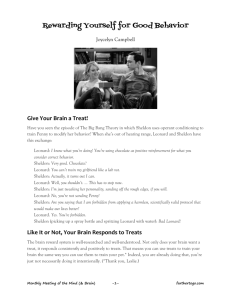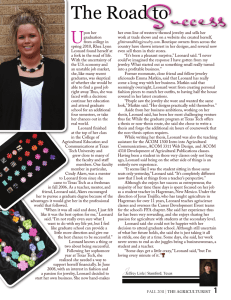Awakenings Movie Psychology Viewing Guide
advertisement
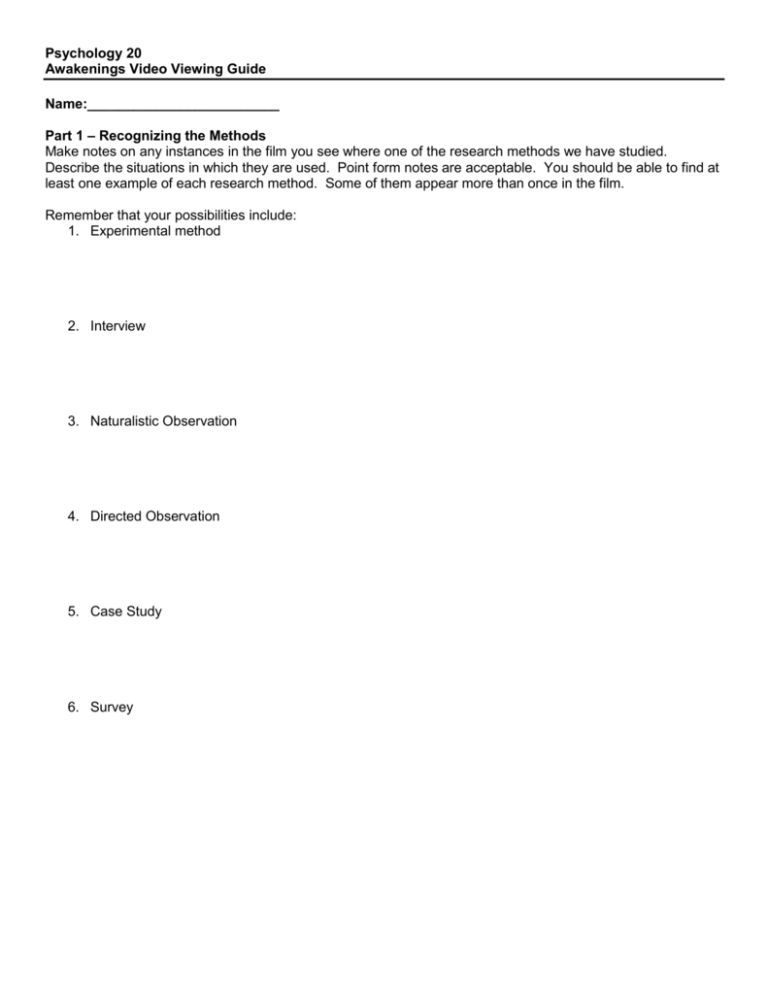
Psychology 20 Awakenings Video Viewing Guide Name:_________________________ Part 1 – Recognizing the Methods Make notes on any instances in the film you see where one of the research methods we have studied. Describe the situations in which they are used. Point form notes are acceptable. You should be able to find at least one example of each research method. Some of them appear more than once in the film. Remember that your possibilities include: 1. Experimental method 2. Interview 3. Naturalistic Observation 4. Directed Observation 5. Case Study 6. Survey Part 2 – Discussion of Ethics 1. Define one question of ethics that you feel were or should have been considered by the doctors at the hospital? 2. Do you think that Dr. Sayer’s research and methods were entirely ethical? Why or why not? Part 3 – Essay Using lined paper, discuss your opinion about any of the following topics. Use examples and ideas from the movie to help support and explain your answer as much as possible. Use a formal essay style to construct your answers. (4 paragraphs) 1. How would you (the audience) want to be treated if you were in Leonard's position? Would you want someone to decide on your behalf to conduct experiments on you? If so, under what restrictions: for example, would it be necessary that you yourself might benefit from the experimental treatment? If you knew that the treatment was only temporary, would you want to be 'awakened' at all? 2. It is a common view that researchers are obligated to exercise more precaution with vulnerable populations, like children or persons whose mental capacities are seriously compromised. If Dr. Sayer had taken a similar approach to medical experiments with children as he did with the more mature adult patients seen in this film, would we think any differently about his professional judgment concerning the risks he was willing to expose his patients to? Why or why not? 3. Before Dr. Sayer is allowed to conduct the drug trial of L-dopa with Leonard, Dr. Kaufman insists that he obtain the written consent of Leonard's mother. What allows Leonard's mother to consent to the treatment on Leonard's behalf? What makes her capable of this and Leonard incapable of giving the required consent for himself? Did Dr. Sayer give Mrs. Lowe adequate information for her to be able to make a good judgment of whether or not the drug trial was in Leonard's best interests? Was Dr. Sayer forthcoming about the risks involved? Was enough known about this drug to warrant testing it on clinical subjects--that is to say, on patients? 4. Is it even ethical to perform experimental drug tests on these patients before conducting tests on animal models or some other kind of models for testing? At one point, Robin Williams' character sneaks into the lab to secretly triple the dosage given to Leonard of the experimental medicine. This seems morally legitimate because it worked -- it 'awoke' Leonard -- but does this success justify both the risk and the deception?
